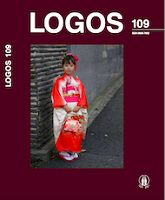Ethics in Education: an Ethical Analysis of the National Standardized Exam Policy in Indonesia
Ethics in Education: an Ethical Analysis of the National Standardized Exam Policy in Indonesia
Author(s): Amirul MukmininSubject(s): Ethics / Practical Philosophy, School education, Educational Psychology, State/Government and Education
Published by: Visuomeninė organizacija »LOGOS«
Keywords: Centralization; educational policy; exam; the ethic of critique; the ethic of justice;
Summary/Abstract: The central government of Indonesia through its Ministry of National Education has been using the National Final Exam to assess student achievement nationally. This practice has become a serious concern for students, parents, and schools nationally and locally. The purpose of this article is to examine the long-standing practice of the National Standardized Exam (NSE) Policy in Indonesia. Starratt’s (1991) ethics of critique and justice are used as the theoretical framework to examine the National Standardized Exam policy. By means of the ethic of critique, it asks educators and leaders to question the current situation or system by examining how policies, programs, practices, and structures are set up. The ethic of justice addresses the questions how we treat individuals based on the standards of justice and how just and fair decisions or policies are made and applied to all individuals equally. Through ethics of critique and justice, the NSE policy needs to be critically evaluated to promote democracy in education in terms of access, quality, and equity for all children throughout the country.
Journal: LOGOS - A Journal of Religion, Philosophy, Comparative Cultural Studies and Art
- Issue Year: 2021
- Issue No: 109
- Page Range: 172-179
- Page Count: 8
- Language: English

